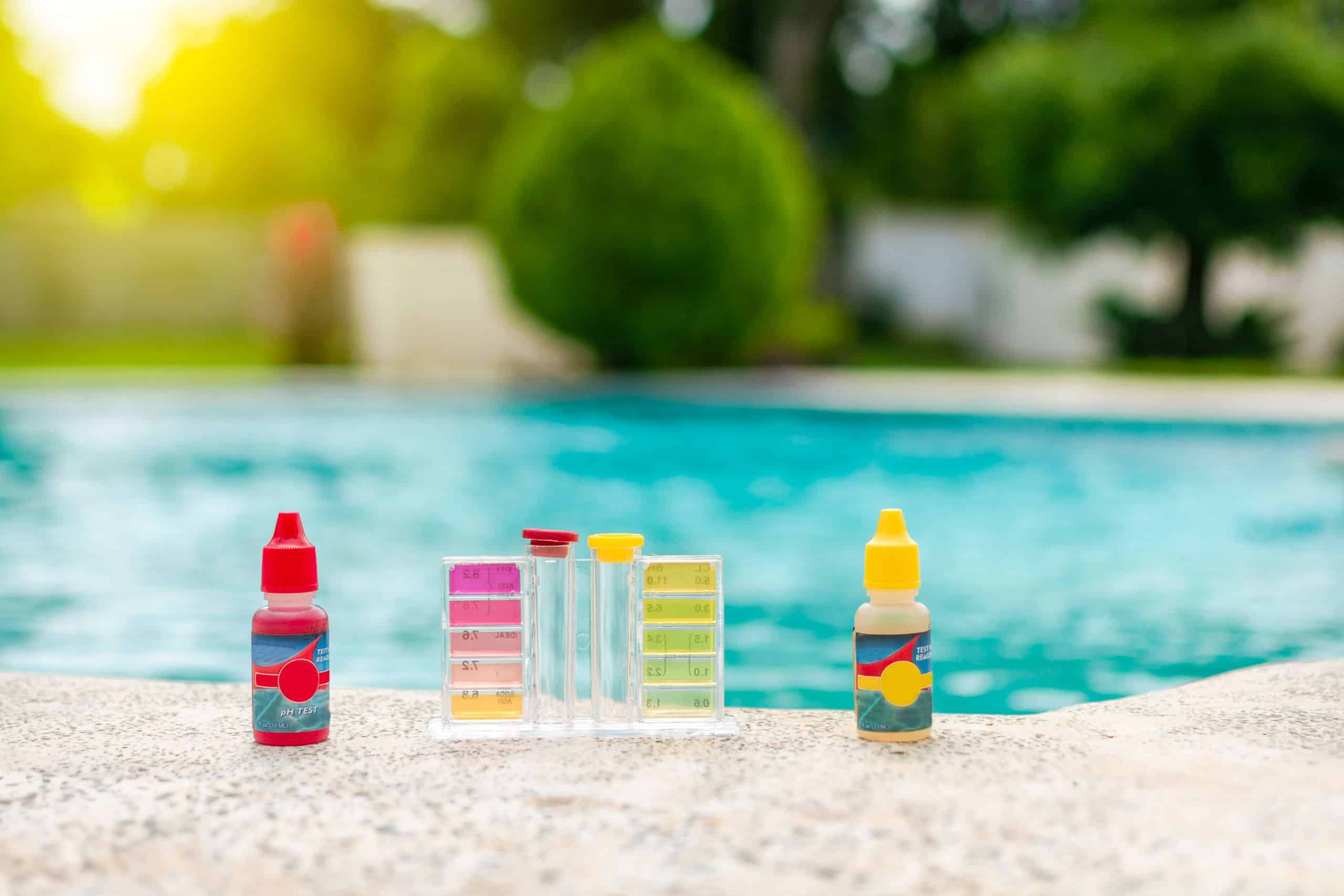
Maintaining balanced pool water chemistry is essential for a clean, safe, and enjoyable swimming experience. Two key factors in this process are pH and alkalinity, which play crucial roles in water quality and equipment longevity. Understanding the difference between pH and alkalinity and how they interact can help keep your pool in top condition.
In this blog, we’ll break down the basics of pH and alkalinity, their impact on your pool, and how to manage them effectively with regular pool maintenance. Let's dive into what you need to know to maintain perfect pool water chemistry.
pH measures the acidity or alkalinity of your pool water on a scale from 0 to 14, with 7 being neutral. For pool water, the ideal pH range is between 7.2 and 7.8. If the pH drops below 7.2, the water becomes acidic, which can lead to problems such as corrosion of pool equipment, irritation of the eyes and skin, and a decrease in the effectiveness of chlorine. Conversely, if the pH rises above 7.8, the water becomes alkaline, which can cause scale buildup on the pool surfaces and equipment, reduce chlorine effectiveness, and lead to cloudy water.
Regularly testing and adjusting the pH is crucial to ensure that the water remains in the ideal range. Keeping pH balanced helps maintain overall water quality and prevents potential damage to your pool and discomfort for swimmers.
Alkalinity measures the water's ability to neutralize acids and maintain pH stability, acting as a buffer for pH fluctuations. Total Alkalinity (TA) is typically measured in parts per million (ppm) and should be maintained within the range of 80 to 120 ppm for pools. Sufficient alkalinity helps stabilize pH levels, preventing drastic swings that can lead to water quality issues. Low alkalinity can cause pH levels to become unstable, making it difficult to maintain a balanced pH and potentially leading to corrosive conditions. On the other hand, high alkalinity can cause pH to drift upwards, leading to cloudy water and scale formation.
Regular monitoring and adjusting of alkalinity are key aspects of standard pool maintenance. Proper alkalinity management is, therefore, crucial for ensuring a comfortable swimming environment and efficient operation of your pool's sanitation system.
While pH and alkalinity are related, changes in pH do not directly alter alkalinity levels. However, the overall balance between them is crucial for maintaining stable pool water chemistry. High pH can sometimes indicate high alkalinity, and vice versa, but they are adjusted separately. When pH levels fluctuate, it can signal that the alkalinity needs attention to stabilize these shifts. Managing alkalinity is important because it buffers pH changes, keeping the water balanced.
Balancing these factors not only improves water quality but also prolongs the life of your pool equipment and enhances the swimming experience. Understanding their interplay is key to maintaining optimal pool water chemistry.
Testing your pool’s pH and alkalinity levels is straightforward with the right tools, such as test strips or a digital tester. Regular testing, ideally once a week, helps you stay on top of any imbalances before they become major issues. For pH, you can adjust levels using pH increasers or decreasers, while alkalinity can be adjusted with alkalinity increasers or reducers. However, achieving the right balance requires more than just adding chemicals; it’s also about understanding how these adjustments interact and affect each other.
For those unfamiliar with the intricacies of pool chemistry, it can be challenging to maintain the perfect balance. Missteps in adjusting pH or alkalinity can lead to issues like scaling, corrosion, or ineffective sanitation. This is where professional pool maintenance services come in. Experts can ensure accurate testing and precise adjustments, taking the guesswork out of pool care. By hiring a professional, you not only save time but also ensure that your pool remains in optimal condition, providing a safe and pleasant swimming environment. Reach out to Captains Pool Care for expert assistance and peace of mind.
Beyond pH and alkalinity balancing, our professional pool maintenance services offer a plethora of benefits including:
Advanced Tools and Equipment: Professionals use specialized tools to thoroughly clean and maintain your pool, ensuring optimal performance and efficiency.
Early Issue Detection: Experts can spot and address potential problems, such as leaks or equipment malfunctions, before they escalate into costly repairs.
Up-to-Date Techniques: Pool maintenance professionals stay informed about the latest products and methods, providing your pool with the most effective treatments available.
Prolonged Pool Life: Regular maintenance helps extend the lifespan of your pool and its components, reducing the need for expensive repairs or replacements.
Optimized Water Quality: Professionals enhance water circulation and filtration, improving overall water quality and reducing the frequency of chemical adjustments.
Stress-Free Pool Care: By managing everything from routine cleaning to complex repairs, pool maintenance experts allow you to enjoy your pool without the hassle of upkeep.
Maintaining the right balance of pH and alkalinity is essential for keeping your pool water clean, clear, and safe for swimming. While understanding these concepts is important, the process of managing them can be complex and time-consuming. Hiring a professional, such as Captains Pool Care, ensures that your pool is expertly maintained and that any adjustments are handled with precision. Trusting experts with your pool maintenance allows you to enjoy a hassle-free swimming experience and prolong the life of your pool. Contact us today to learn more about why our clients love working with us!